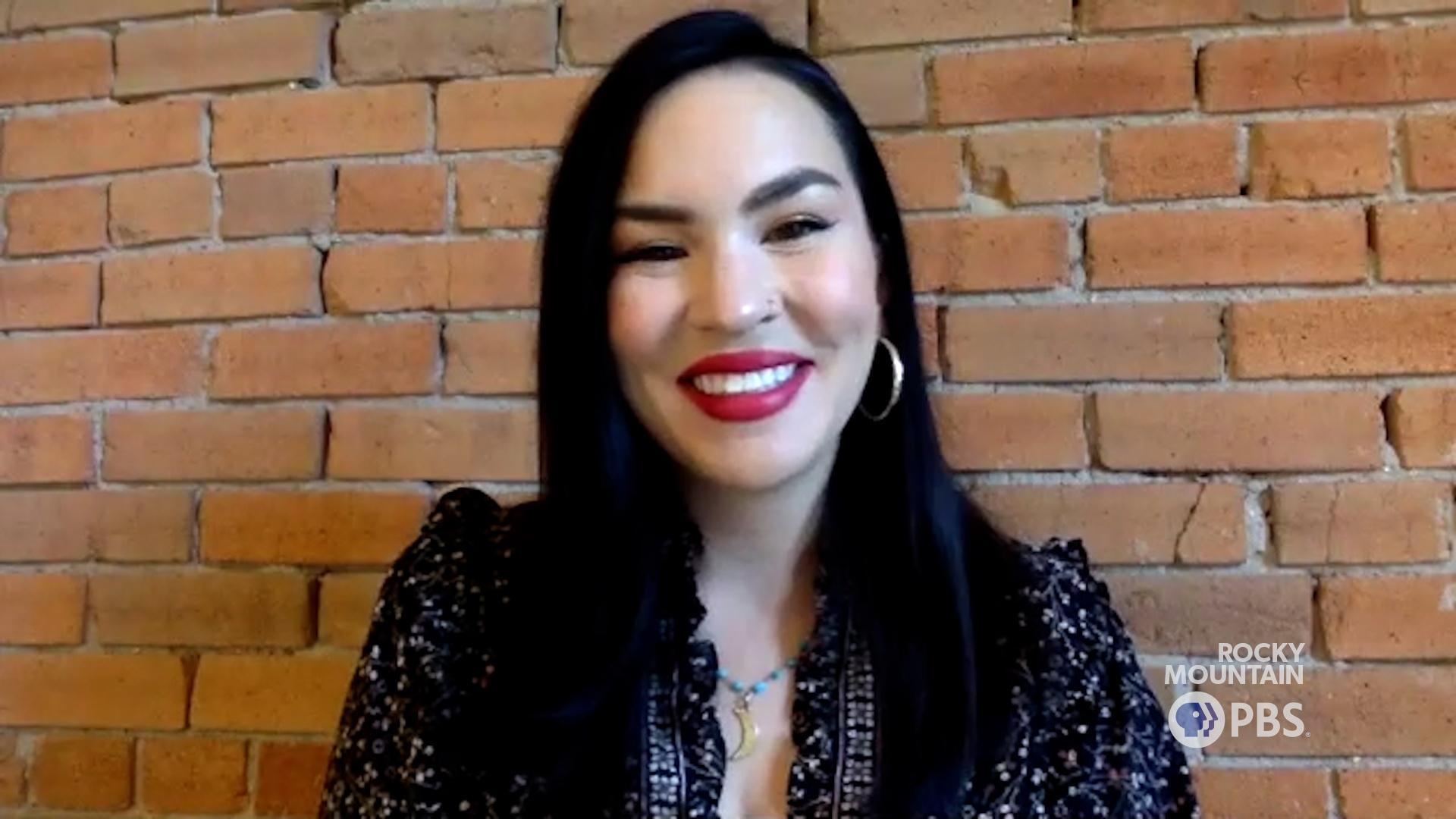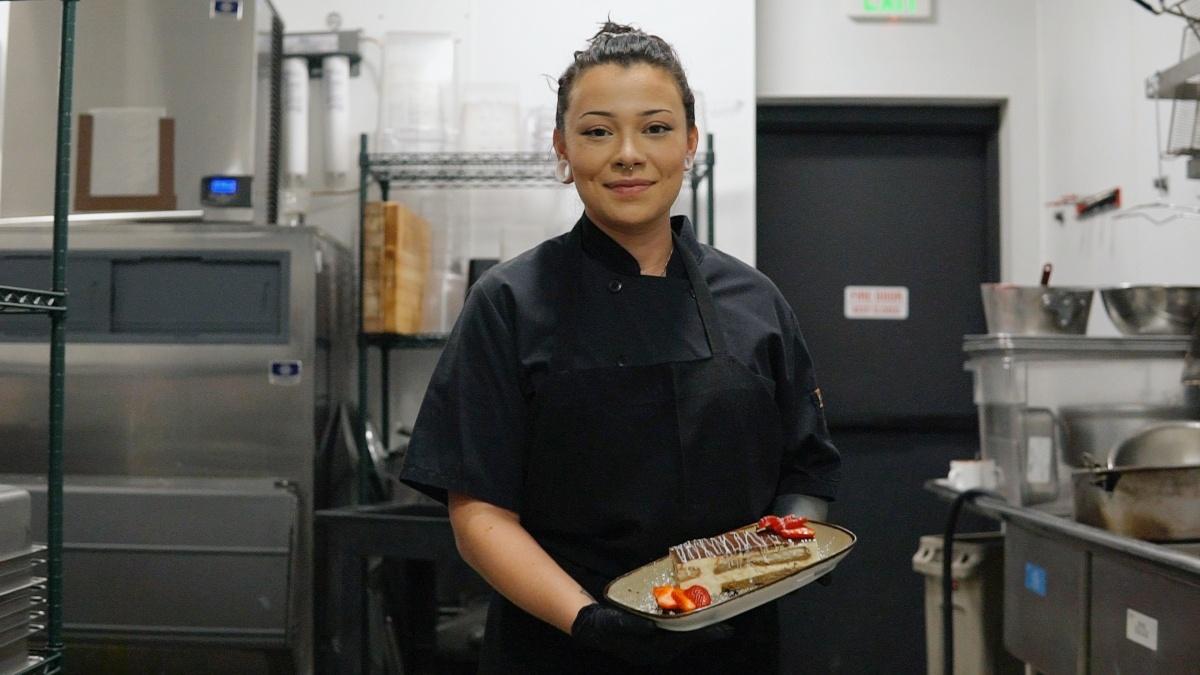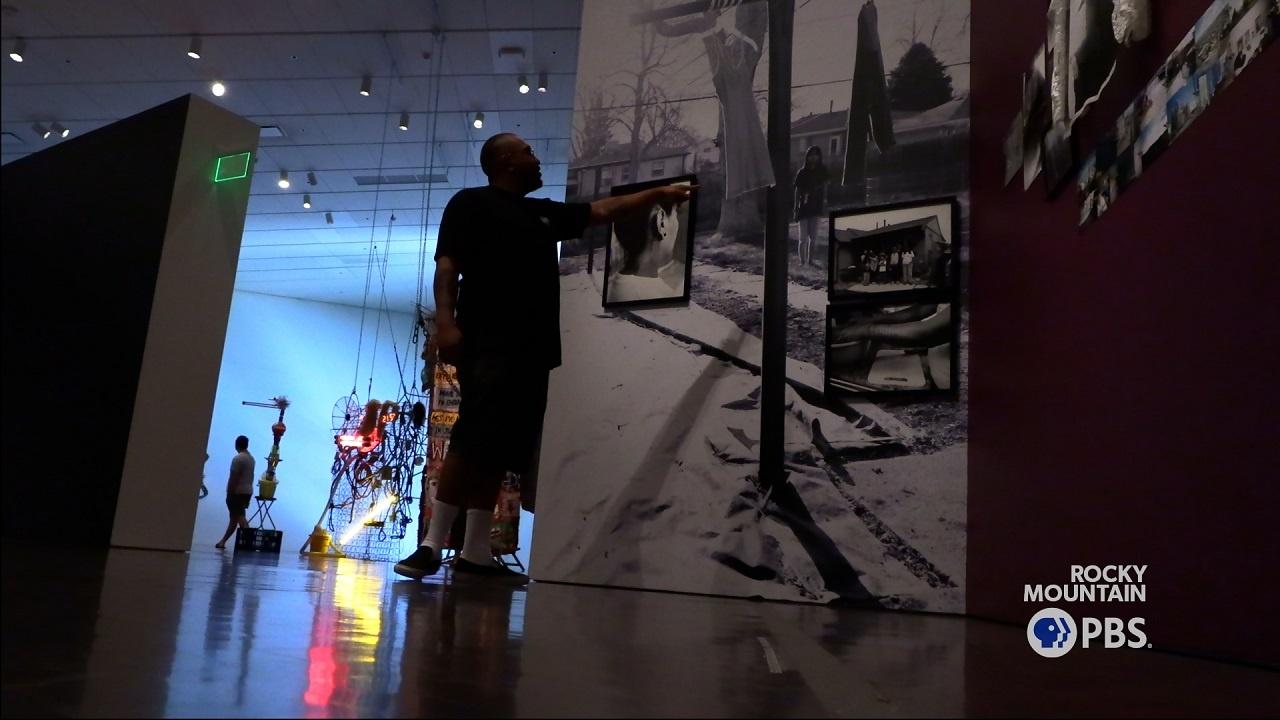Talk about growing up in Colorado
I’m the second eldest of seven children. My family has been in Denver since the 1920s. On my maternal line, my mother’s people came north from southern Colorado and the San Luis Valley, Northern New Mexico. I have a great-grandfather who came from the Philippines. On my father’s side, we are white Americans from Nebraska by way of Poland. So, I grew up with this incredibly multicultural, diverse family and we were very proud of our Latina/ Latino heritage from Colorado.
We would drive all over the city to visit an auntie from the West Side, my great grandma in Five Points and it was a very vibrant and wonderful life filled with storytelling.
Can you share your struggles with mental health and how that lead you to become a writer?
I faced a lot of challenges in school. I went to Pomona High School, and I actually ended up dropping out of school. I struggled a lot with depression and mental health in those years of my life. It was through writing that I found an outlet and something that made me feel smart and in control of my own destiny.
I really started to struggle by the time I was in Elementary School with the workload. I came from this very big family, I didn’t have a lot of support with my homework, there were so many kids. We lived in a small house so I didn’t have my own bedroom or a quiet space where I could go study. The only time I would have any moment to myself is when I would walk to the library, and I would sort of hide out at the library.
It was really in high school where I decided I wanted to become a writer because I started to read so many novels and there were safe spaces for me, and I could see myself in these stories. Even though not many of the characters looked like me or came from my same background. It was also in high school where one of my teachers told me I would never be able to go on to college that with my grades and my absences and my depression, someone like me would never be a successful student and so that lead me to drop out but it wasn’t the end of my story though.
How did your career as an author develop?
I ended up getting my GED right away. I went to Metropolitan State University of Denver where I studied English and Chicana and Chicano Studies and I again did not know someone like me could end up getting a master’s degree in creative writing. I didn’t even know that existed until a professor of mine saw I had talent and said, "Hey, I think you should apply for these graduate school programs." It was not an easy journey once I got to graduate school. I was the first in my family to leave the state. I went far away to California; I was all alone.
During that time, the family matriarch, my great Auntie Lucy, died. And I remember just again being so overwhelmed with sadness and feeling like I was all alone, and I wasn't smart enough to be in school. And so, I left that program as well.
I eventually ended up graduating with my masters of fine arts from the University of Wyoming, but that was after really committing myself and deciding what I had to say was important. And it did not matter how many people told me they were not going to publish me, that no one was going to listen to my story because I decided that this was something I was doing for myself and for my family and no one was going to be able to tell me otherwise.
After I graduated from my master's program, I kept writing. It would be several years before I was able to publish my first book, Sabrina and Carina. During that time, again, I was sure of my purpose that I was meant to be a writer. And no matter what happened, I just kept going.
How is honoring your ancestors is a part of your work?
I grew up with this big, big family, and the best storytellers were my Auntie Lucy and my godmother, her daughter. Her name is Joanna and my great grandma Esther, my great grandpa Alfonso. And their lives were just incredible! They had come north from southern Colorado, they were very poor, they worked the fields, they picked beets. My great-grandpa from the Philippines worked as a waiter his whole life, and they just were so glamorous to me.
They would talk about going to dances and their beautiful clothes and the makeup, but then I would look all over in the movies and in the books, and there were no characters like them. There were no families like us, and they weren't set in places like Denver. They were set in Los Angeles or New York City or Chicago.
Early on, I would say probably my early teens, I remember being on Galapago Street on the West Side and my Auntie Lucy's house and hearing her tell the stories of her upbringing and her teenage years in the city. And I just remember thinking, "This has to be a novel. I'm going to write a novel about my family someday."
And so I think in a lot of ways, Woman of Light is really my attempt to honor my family's story, is to put us into the historical record, but also make sure that people who come from backgrounds like mine, they have big epic stories and novels just as much as other people. I want to make sure that they feel included in the world of literature in a big way.
What would you tell your younger self?
A lot of students will come up after I give a talk or I have a book event and they will say, "How did you do it? How did you keep going?" And I look at them and I can see the sadness. I can see the look in their faces that tells me that they've been told that they're nothing, that they're not going to succeed, or their home life may be as chaotic. Maybe they don't have a lot of money. Maybe they're struggling with depression and anxiety or other mental health issues. And when I see students like that, I see myself.
What I would tell myself as a younger person, as a younger Latina, is that it's going to be better. I know it's going to be better because if you keep putting your best foot forward, the universe will conspire to support you. I truly do believe that.
One of the things that helped me greatly in my journey of resiliency, of not giving up, is setting goals. I had my long-term goal, which I wanted to be a famous writer. How was I supposed to become a famous writer growing up in Denver with no connections to the publishing world in New York City? Well, I didn't know how I was going to do that, but I set a goal. I said, "I want to be a big writer someday. I want people to read my books." So that was the very first step, is that I knew where I was aiming. The second step was smaller goals, so I knew the big goal was really off in the distance, but the smaller goals were going to help me get there.
So, the biggest thing I would tell students like me is make sure you have your long-term goal, but also your short-term goal and do know that it will get better. As long as you keep showing up for your life and you keep valuing yourself and your community and where you come from, we will help you and support you. The world will support you; I do believe that.
What is your favorite memory of sharing your book with your family?
One of my favorite memories is of sharing my first book, Sabrina and Corina. I lived in this low-income housing development behind Coors Field, and my mom drove by to come see us and I had just gotten the copies. And I'm running outside, it’s this big building in this alleyway. And I'm running and running and I'm like, ‘mama, mama, roll down the window!’ And she says, "What is it? What is it?" And I just hold it up and my mom just starts crying. She grabs it and she hugged it and kissed it like a grandchild. And she said, "Oh my God, my baby's baby." She just kept crying. I'm, crying right now as I share the story. But in that moment, I realized it's so much bigger than me. This is about the whole community.
[My parents have] gone through so much and it's so generational. My mom wanted to be a writer and she is a writer in her own right. But she's not publishing on an international level like I am. So, I'm like an extension of her achievements.
Sonia Gutierrez is a multimedia journalist with Rocky Mountain PBS. You can reach her at soniagutirrez@rmpbs.org





